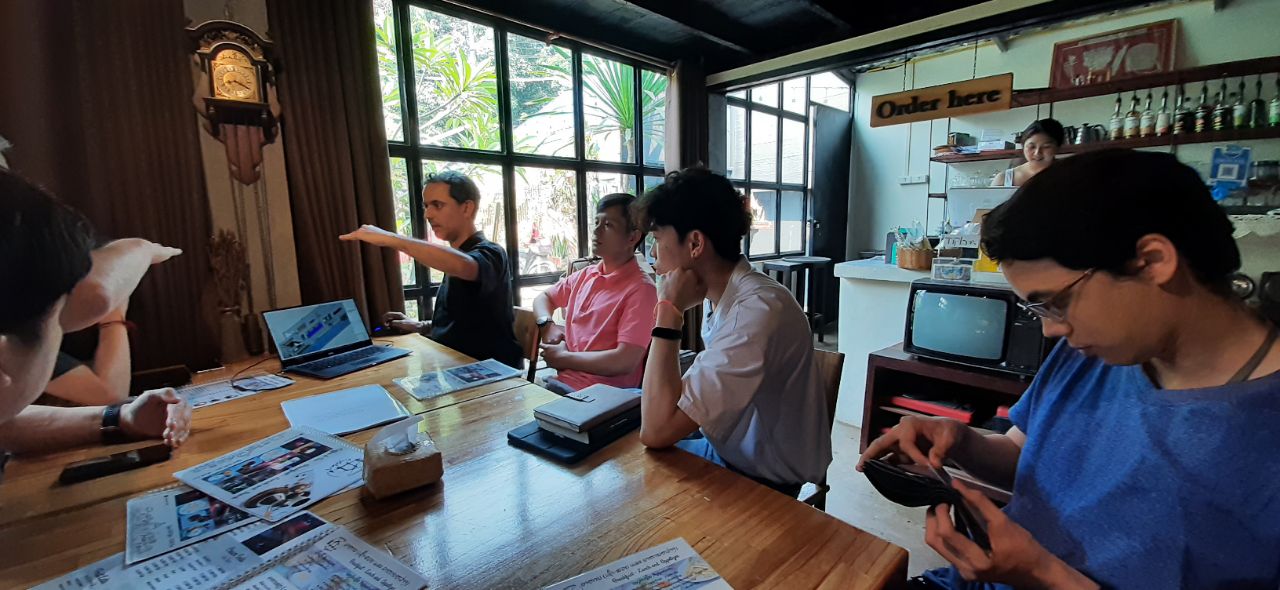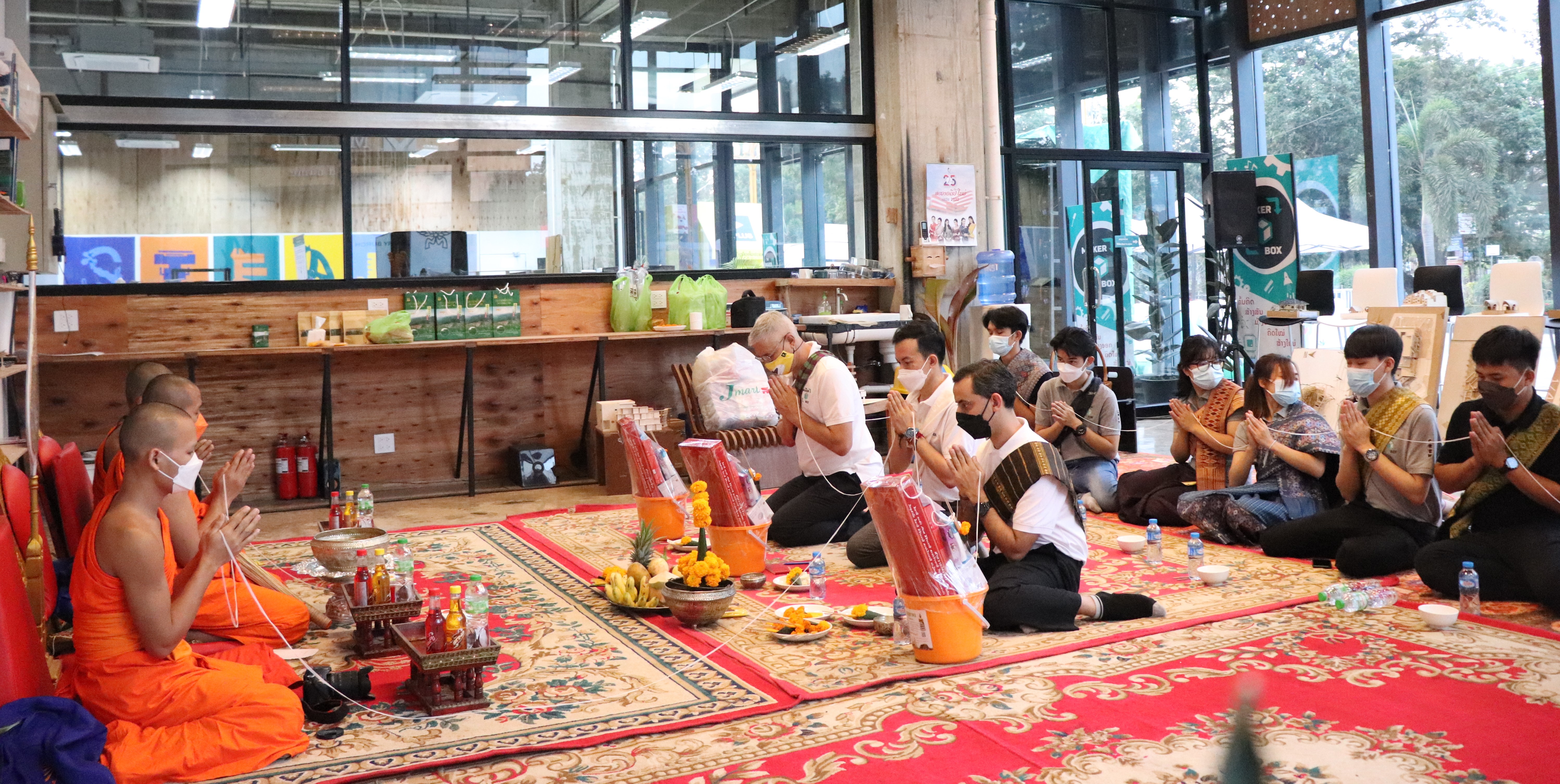Building the Makerbox Lao (MBL)
A Journey of Innovation and Community in Laos
In 2020, I found myself on an unexpected journey that led to the creation of the first makerspace in Laos, a development that has since become an integral part of my life and work. This is the story of Makerbox Lao (MBL), a nonprofit that emerged in the heart of Southeast Asia and the role I played in its creation.
The Move to Laos
My partner received a position in Laos (Lao PDR), a Southeast Asian country rich in culture and biodiversity but with limited access to technology and maker communities. Wanting to be close to my partner, I arranged for regular visits. However, my first trip to the country took an unexpected turn. The pandemic struck just days after my arrival, and the borders shut down. Faced with the choice of staying or returning to Europe and be separated from my partner for an indeterminate amount of time, I opted to stay. That is how what was supposed to be a short visit turned into three years in Laos.
the Idea
A few months into my stay, I heard about a small group of people interested in establishing the country’s first makerspace. A makerspace, for those unfamiliar, is a collaborative workspace where people with shared interests—particularly in electronics, robotics, 3D printing, and various STEM fields—can gather to create, learn, and share resources and knowledge. Intrigued, I reached out and attended my first meeting at an inconspicuous café nestled in a small alley next to a Buddhist temple. What I encountered was an eclectic mix of individuals, both young Laotians and a couple of foreigners, discussing ideas ranging from an AI-powered Laotian music synthesizer to more practical solutions like early flood warning systems.

The atmosphere was electric, and I immediately felt that this was a project worth pursuing. I decided to invest a significant portion of my savings, making me the second-highest investor in what would become Makerbox Lao.
Early Challenges and Building the Space
The journey to establish MBL was a wild ride. We were starting from scratch, navigating the challenges of the pandemic, financial constraints, and building something in an environment that had never seen such a concept before. We secured a location in a newly constructed Chinese “ghost mall” and embarked on the massive task of transforming it into a functional makerspace. We poured concrete, installed electrical wiring, set up AC, and designed the space ourselves, all on a shoestring budget.

Our efforts culminated in a soft opening, followed by an official inauguration ceremony, which included showcasing our projects and those from local universities. It was a deeply emotional moment, capped off by a Buddhist blessing ceremony that marked the beginning of something truly special.
Defining Our Mission and Business Model
One of the most challenging aspects was defining a sustainable business model that would allow us to operate as a nonprofit. Registering a nonprofit in the protectionist environment of Lao PDR is nearly impossible, so we had to be creative. We decided on a four-pronged approach:
- Makerspace Access: Open to everyone for a small fee, providing workspace, Wi-Fi, and tools.
- Workshops and Events: Centered around STEM topics, generally paid but designed to foster engagement.
- Incubation and Hosting: Supporting startups or groups with space and resources, with MBL potentially taking a stake.
- Consulting and Grants: Leveraging the expertise of MBL members to apply for grants and provide technical services.
Balancing accessibility with sustainability was, and remains, a delicate task. We initially charged an entry fee but later adjusted our model to charge only for events, ensuring that we remained open and attractive to our core target audience—those with ideas but without the means, network, or background to realize them.

Learning and Adapting
Like any startup, we had to adapt quickly. Our initial burst of enthusiasm was met with the reality that maintaining engagement, particularly with limited foot traffic, was challenging. We experimented with different revenue streams, such as selling STEM-based toys, but found limited success. A significant lesson was that consistent engagement, both online and offline, was critical to sustaining interest in the space. We also learned that events driven by local experts, especially those from neighboring Thailand where the maker scene is more established, had the highest engagement.

The Importance of Structure, Communication, and Recognition
As we evolved, we recognized the need for structure. Clear roles, expectations, and decision-making processes became essential to keep everyone aligned, especially with a diverse group of founders with their own projects. Transparency, communication, and recognizing various forms of contributions—whether financial, time, or expertise—were pivotal in maintaining motivation and collaboration.
The saying “time is money” may be overused, but I felt its truth sharply while trying to build a stable organization like MBL. Every moment spent searching and applying for grants meant less time for executing projects, and hiring roles like a receptionist or social media manager—while boosting traffic and engagement—added a significant financial burden. This trade-off applied to everything—from organizing events to DIY tasks for outfitting our space. Balancing these demands became a delicate art that I felt acutely. Ultimately, developing the ability to quickly decide whether to invest money, do it yourself, or shelve a task is a crucial skill. In this process, having a motivated team ready to step up when needed to get you over the edge is essential.

Successes and Impact
Looking back, after a bumpy first couple of years, MBL has now achieved relative financial stability, primarily thanks to grants, partnerships, and consulting projects. We’ve accumulated quite a few achievements along the way, some of the ones I was directly involved in include:
- Space Month: A series of events and conferences with international space scientists.
- Contracts with CIAT/NAFRI: Designing and implementing an irrigation system for an experimental cassava farm and developing a Lao-made smart farming monitoring system.
- ISIF Asia Grant: Creating a data exchange system for rural farmers with limited internet access to connect with agricultural modelers.
We have also incubated two startups and provided a platform for various resident groups, some of whom have won prestigious awards, such as the Ecothon Challenge 2024, where we showcased our recycled 3D filament and leaf-based single-use plate projects.
The Path Ahead
MBL is now entering a second phase of consolidation, where we’ll apply the lessons learned and expand into more projects. While we still rely on volunteer work, the potential for growth is immense. In the coming years, our focus will be on streamlining operations and securing more stable core funding. It’s incredibly exciting to be part of an organization that actively drives change, fosters innovation, and provides a platform for creativity in a country where such opportunities are rare. This experience has been uniquely rewarding for me; unlike my previous volunteering roles, which were more individual and technical, this journey has evolved into a larger, collective endeavor — one that truly made a difference.
Share